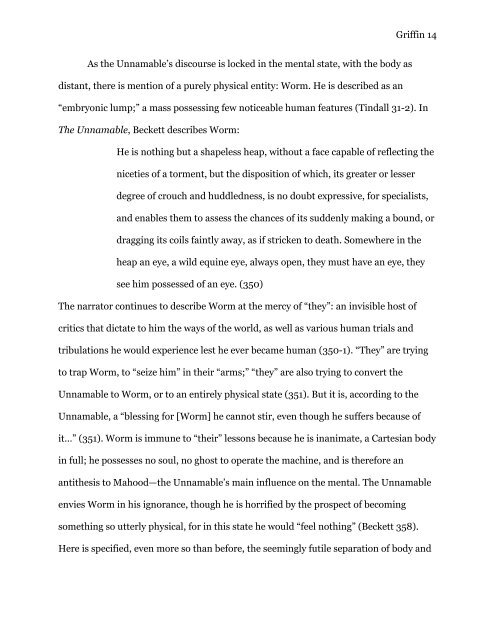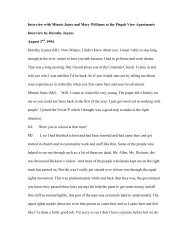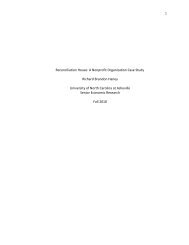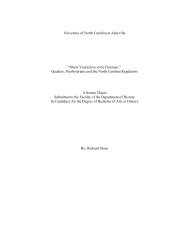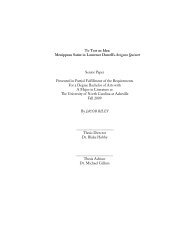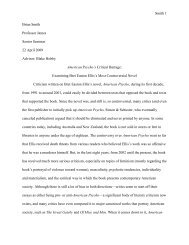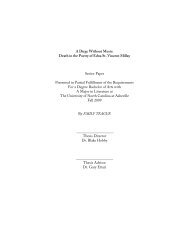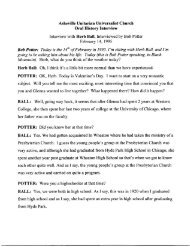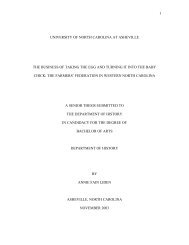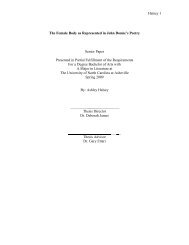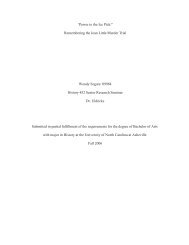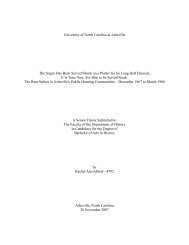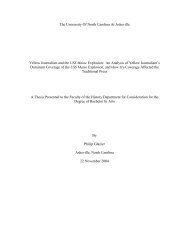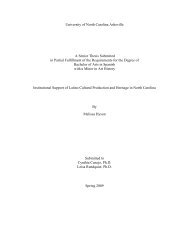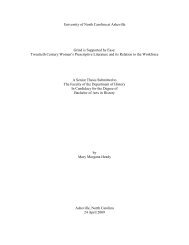Cartesian Thought in Samuel Beckett's The Unnamable
Cartesian Thought in Samuel Beckett's The Unnamable
Cartesian Thought in Samuel Beckett's The Unnamable
- No tags were found...
You also want an ePaper? Increase the reach of your titles
YUMPU automatically turns print PDFs into web optimized ePapers that Google loves.
Griff<strong>in</strong> 14As the <strong>Unnamable</strong>’s discourse is locked <strong>in</strong> the mental state, with the body asdistant, there is mention of a purely physical entity: Worm. He is described as an“embryonic lump;” a mass possess<strong>in</strong>g few noticeable human features (T<strong>in</strong>dall 31-2). In<strong>The</strong> <strong>Unnamable</strong>, Beckett describes Worm:He is noth<strong>in</strong>g but a shapeless heap, without a face capable of reflect<strong>in</strong>g theniceties of a torment, but the disposition of which, its greater or lesserdegree of crouch and huddledness, is no doubt expressive, for specialists,and enables them to assess the chances of its suddenly mak<strong>in</strong>g a bound, ordragg<strong>in</strong>g its coils fa<strong>in</strong>tly away, as if stricken to death. Somewhere <strong>in</strong> theheap an eye, a wild equ<strong>in</strong>e eye, always open, they must have an eye, theysee him possessed of an eye. (350)<strong>The</strong> narrator cont<strong>in</strong>ues to describe Worm at the mercy of “they”: an <strong>in</strong>visible host ofcritics that dictate to him the ways of the world, as well as various human trials andtribulations he would experience lest he ever became human (350-1). “<strong>The</strong>y” are try<strong>in</strong>gto trap Worm, to “seize him” <strong>in</strong> their “arms;” “they” are also try<strong>in</strong>g to convert the<strong>Unnamable</strong> to Worm, or to an entirely physical state (351). But it is, accord<strong>in</strong>g to the<strong>Unnamable</strong>, a “bless<strong>in</strong>g for [Worm] he cannot stir, even though he suffers because ofit…” (351). Worm is immune to “their” lessons because he is <strong>in</strong>animate, a <strong>Cartesian</strong> body<strong>in</strong> full; he possesses no soul, no ghost to operate the mach<strong>in</strong>e, and is therefore anantithesis to Mahood—the <strong>Unnamable</strong>’s ma<strong>in</strong> <strong>in</strong>fluence on the mental. <strong>The</strong> <strong>Unnamable</strong>envies Worm <strong>in</strong> his ignorance, though he is horrified by the prospect of becom<strong>in</strong>gsometh<strong>in</strong>g so utterly physical, for <strong>in</strong> this state he would “feel noth<strong>in</strong>g” (Beckett 358).Here is specified, even more so than before, the seem<strong>in</strong>gly futile separation of body and


